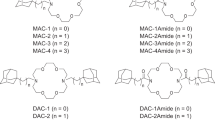Abstract
Decreased accumulation of the fluorescent dye BCECF [2', 7'-bis-(2-carboxyethyl)-5-(6)- carboxyfluorescein] characterized murine and human multidrug-resistant cell lines overexpressing the multidrug resistance protein (MRP). Indomethacin (10 microM), a known cyclo-oxygenase and glutathione-S-transferase inhibitor as well as a modulator of anion transport, increased accumulation and blocked efflux of BCECF in MRP-expressing murine and human cells. The drug did not affect P-glycoprotein (P-gp)-mediated export of rhodamine 123. The indomethacin effect on BCECF efflux was not reversed by the addition of exogenous prostaglandins, suggesting that the drug acts by a mechanism other than decreasing prostaglandin synthesis. Indomethacin also increased multidrug susceptibility of both murine and human cell lines overexpressing MRP, but not those displaying P-gp-associated resistance. In addition, indomethacin modulated the decreased vincristine accumulation in cells expressing MRP, but not in those expressing P-gp. These data suggest that indomethacin is a specific inhibitor of MRP, possibly functioning by inhibition of glutathione-S-transferase or, alternatively, by direct competition with the drug at the transport site.
Similar content being viewed by others
Author information
Authors and Affiliations
Rights and permissions
About this article
Cite this article
Draper, M., Martell, R. & Levy, S. Indomethacin-mediated reversal of multidrug resistance and drug efflux in human and murine cell lines overexpressing MRP, but not P-glycoprotein. Br J Cancer 75, 810–815 (1997). https://doi.org/10.1038/bjc.1997.145
Issue Date:
DOI: https://doi.org/10.1038/bjc.1997.145
- Springer Nature Limited
This article is cited by
-
Role of multidrug resistance-associated proteins in cancer therapeutics: past, present, and future perspectives
Environmental Science and Pollution Research (2021)
-
The limitations of renal epithelial cell line HK-2 as a model of drug transporter expression and function in the proximal tubule
Pflügers Archiv - European Journal of Physiology (2012)
-
Active Transport of Contact Allergens and Steroid Hormones in Epidermal Keratinocytes is Mediated by Multidrug Resistance Related Proteins
Journal of Investigative Dermatology (2010)
-
Indomethacin induces apoptosis via a MRP1-dependent mechanism in doxorubicin-resistant small-cell lung cancer cells overexpressing MRP1
British Journal of Cancer (2007)
-
Indomethacin overcomes doxorubicin resistance with inhibiting multi-drug resistance protein 1 (MRP1)
Cancer Chemotherapy and Pharmacology (2006)



